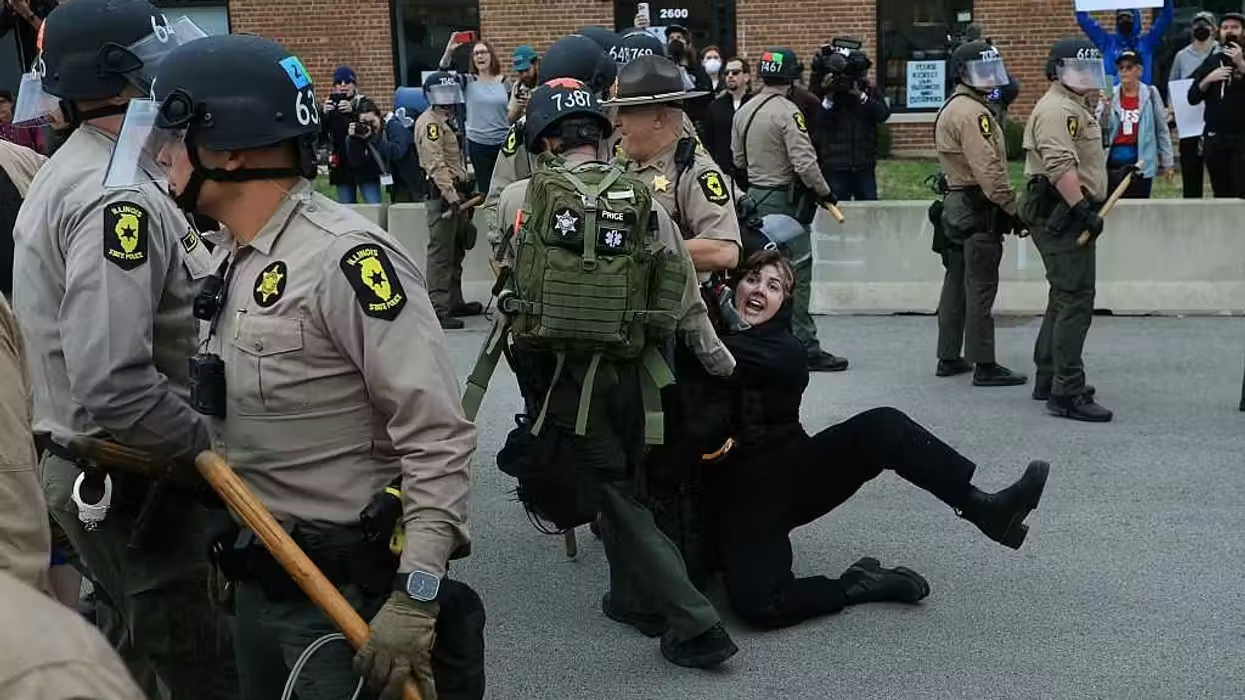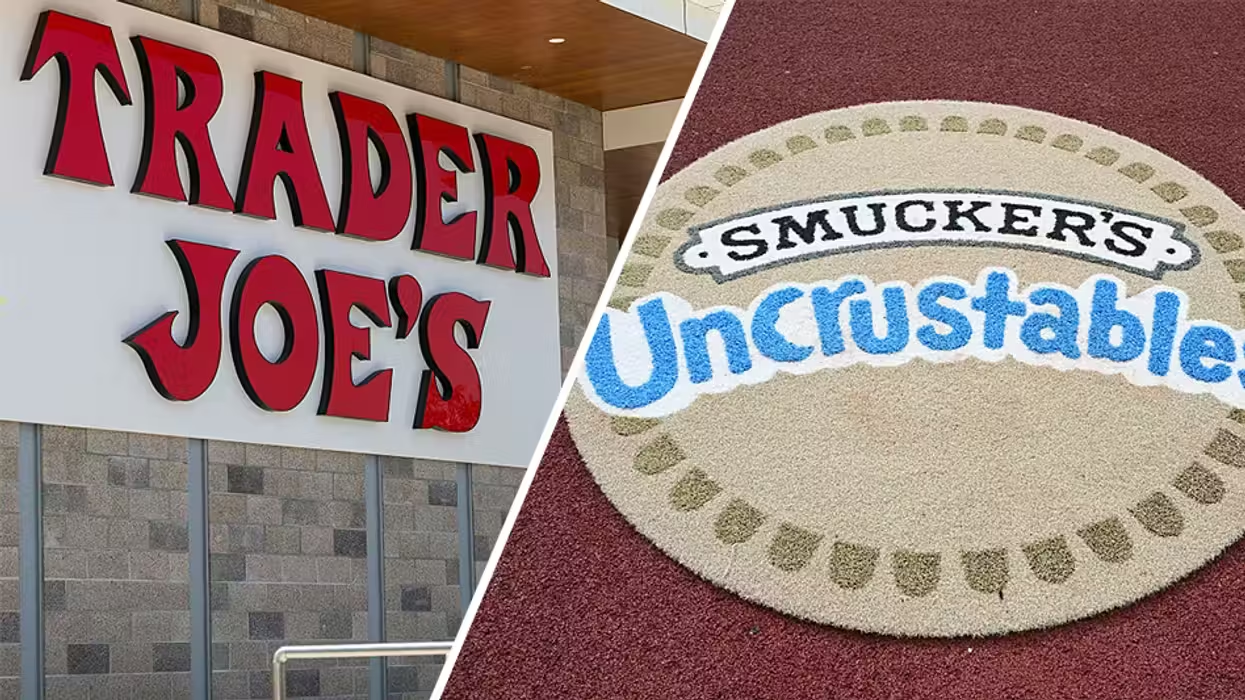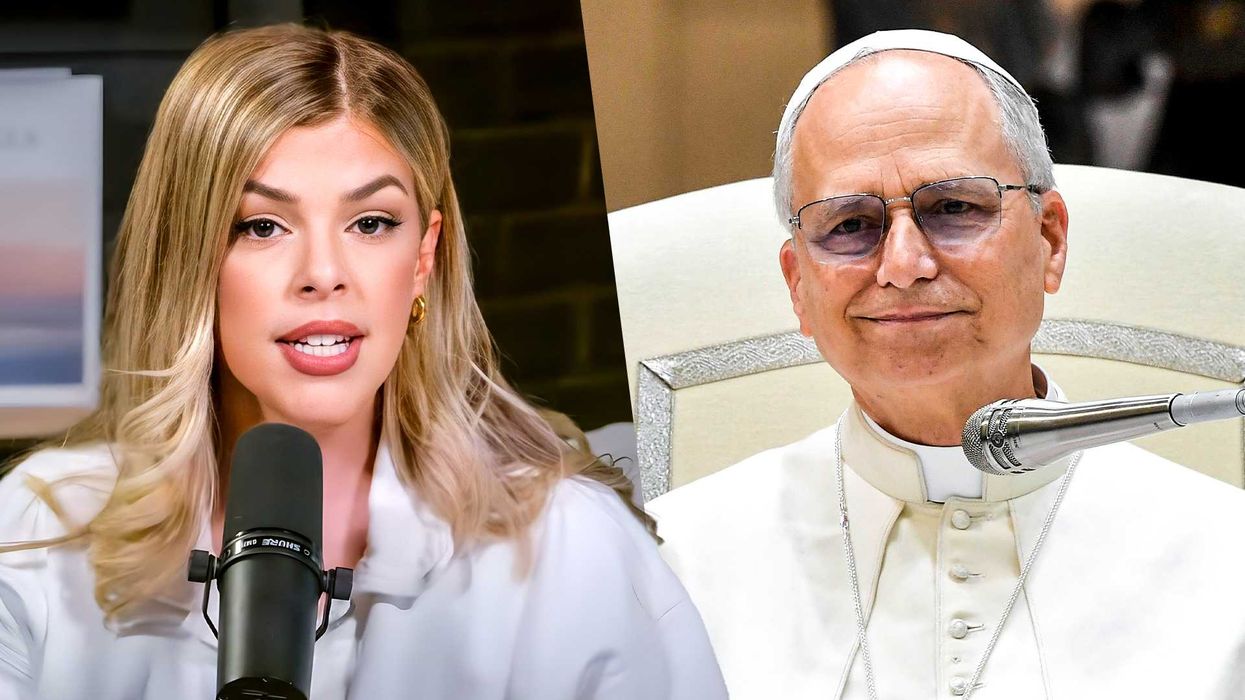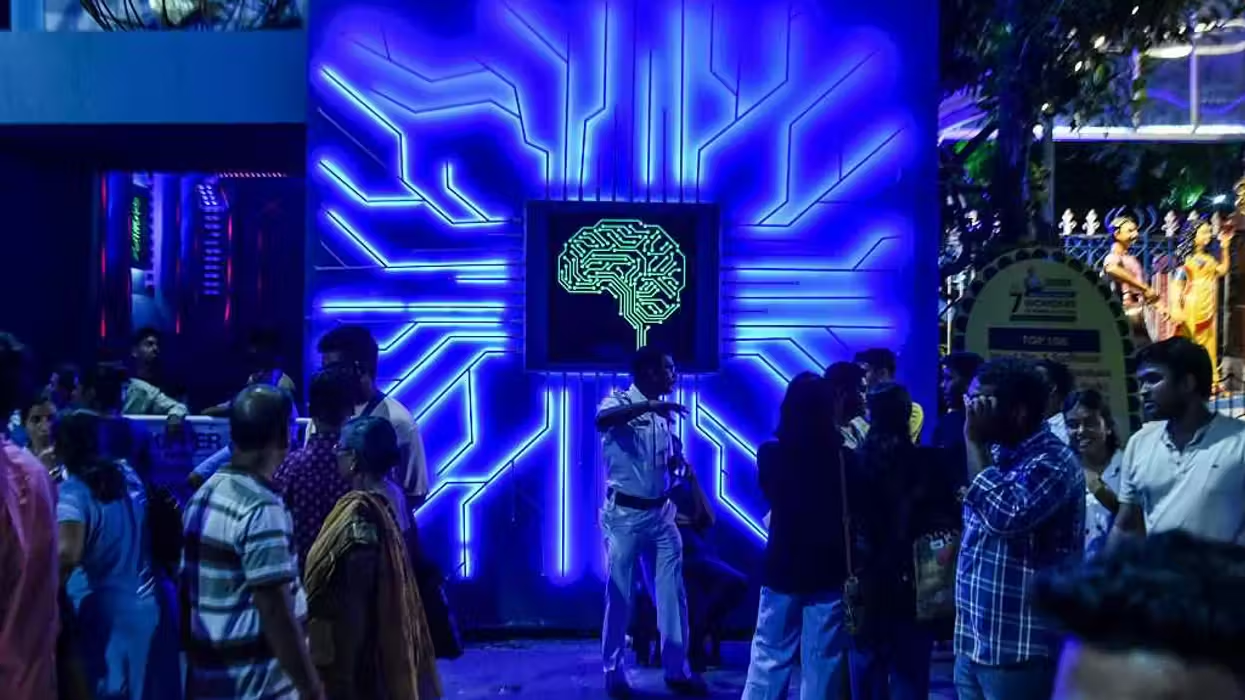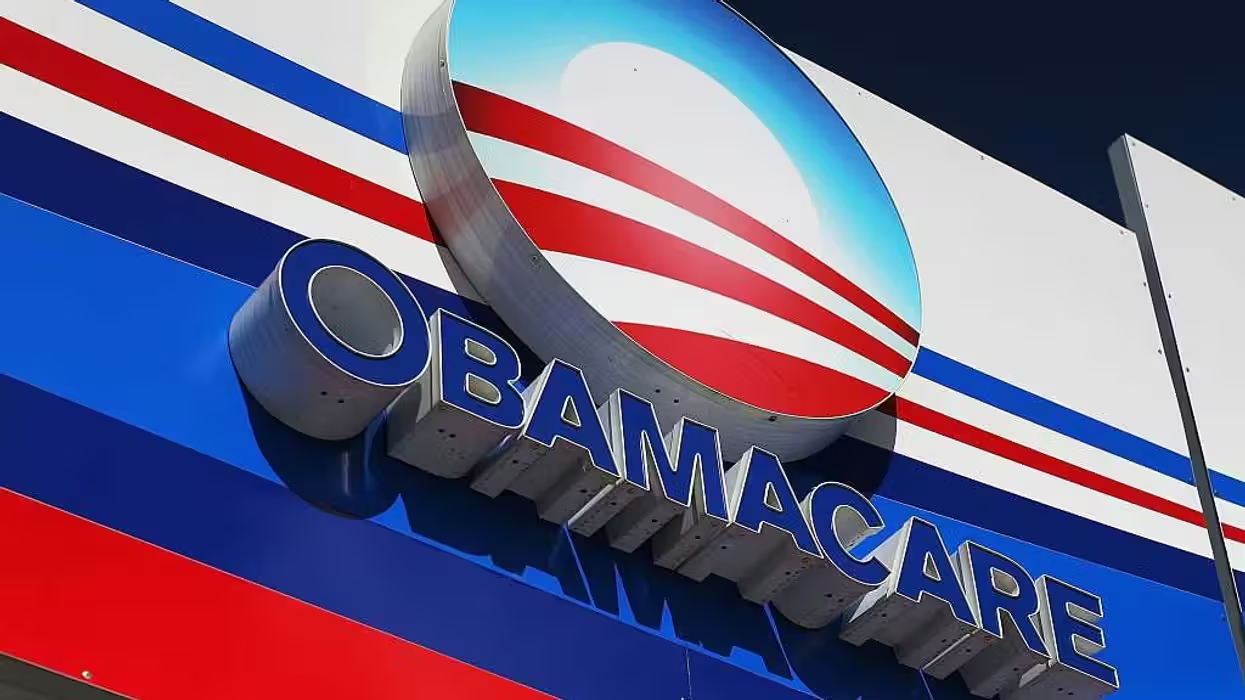Law enforcement’s image took a severe pounding in the year since a police officer in Ferguson, Missouri killed an unarmed black man after a confrontation – sparking riots in that city and magnifying subsequent incidents elsewhere.
“This country has moved in a way with anti-cop rhetoric about ‘don’t trust police and resist them openly,’” said Ron Hosko, president of the Law Enforcement Legal Defense Fund. “There’s no lack of specific instances where police are acting questionably, but over and over again we’re seeing more instances of citizens saying, Why can’t I give a cop the finger? Why can’t I challenge what a cop does?”
 Police officers watch protesters as smoke fills the streets, Nov. 25, 2014, in Ferguson, Mo. (AP Photo/Charlie Riedel)
Police officers watch protesters as smoke fills the streets, Nov. 25, 2014, in Ferguson, Mo. (AP Photo/Charlie Riedel)
Hosko, a former assistant director of the FBI, blamed what he considers excessive media coverage of a few incidents – such as the deadly police confrontations in Staten Island and Baltimore – as well as the Obama administration and other politicians for what he considered maligning 800,000 police officers nationally.
The consequences, he said, are that good police officers who consider themselves under scrutiny will be reluctant to act, and it will be tougher to recruit good people to be cops.
On Aug. 9, 2014, Ferguson police officer Darren Wilson, 28, shot and killed Michael Brown, 18, after a confrontation between the two. Video later showed that Brown had robbed a convenience store, and Wilson alleged he was attacked. On Nov. 24, a prosecutor announced there would be no indictment against Wilson, and riots ensued in the St. Louis suburb.
On March 4, the Justice Department declared that it would not prosecute Wilson for Brown’s death and released a scathing report on the Ferguson police department, asserting that blacks are disproportionately stopped and are the subject of use of force in the city.
“Hands-up don’t shoot turned out to be a lie,” Hosko said. “Now that police officer’s judgments were ratified and justified by local and federal investigations, but Daren Wilson has to hide in society. I was also disturbed that this administration would send representatives to the funeral of a store robber who assaulted a cop.”
He adds that there are bad cops. The Law Enforcement Legal Defense Fund defends law enforcement officials, but Hosko said the organization does turn many cases away when the police officer is wrong.
“I hope we do get unaccountable cops out of the profession,” Hosko said. “Crooked cops tarnish the badge. I’m troubled that across the country, police chiefs fire people for corruption then arbitration puts them back on the job.”
The White House Task Force on 21st Century Policing was established after Ferguson. Since that time, a police officer choked Eric Garner to death after a confrontation in Staten Island, and other officers were blamed for the death of Freddie Gray in Baltimore. Unlike the Ferguson and New York cases, the Baltimore police officers have been charged in the Gray case.
The White House task force report called for banning certain military equipment to local police, requiring police-worn body cameras, improved community policing to increase trust between police and communities, a new data collecting initiative as a means of reducing the use of force and $163 million in Justice Department grants to local police across the country.
The National Organization of Black Law Enforcement Executives, or NOBLE, has played a central role some of the reform efforts, meeting with local law enforcement officials and community leaders in Ferguson, Missouri New York, Cleveland, Baltimore and elsewhere.
"We will continue to serve as the conscience of law enforcement through our continuing work with the U.S. Department of Justice and other government, community and civic partners, all in an effort to focus on the broader issue of improving policing in communities in America and to reform, where needed, the American criminal justice system at large." NOBLE President Gregory A. Thomas said in a statement.
"We also pledge to provide support to our long standing member, Police Chief Andre Anderson, as he takes steps to lead change in Ferguson, Missouri, an effort that we are confident will be recognized as another seminal moment in the history of American policing," Thomas added.
White House spokesman Frank Benenati told TheBlaze that the administration has prioritized criminal justice reform in part to help police.
"The president made it clear that we as a nation are spending $80 billion on incarceration when the money could be better spent on programs that support officers," Benenati said. "The money is there. It is just being misspent."
The White House further referred TheBlaze to a previous comment by press secretary Josh Earnest on funding the recommendations of the task force report, regarding grants for 50,000 body-worn cameras in a pilot program.
“I know of one particular study that indicated that police officers who were wearing body-worn cameras were much less likely to be involved in confrontations with members of the community,” Earnest added. “So that's one preliminary piece of evidence that would indicate that body-worn cameras could be helpful in this regard.”
Hosko does see a positive side in the conversation that has happened since.
“Ferguson was an incredibly significant impact on law enforcement. In the positive, it renewed conversations about professionalism, training and about resources,” Hosko said. “Body cameras will be put in place, which I support. But there are policies and procedures in place to collect and store that data, and how we share it with the public and the media. There will be a lot of growing pains with body cameras. Rational people will do the right thing when they know they are being watched.”
However, Hosko has some issues with the task force report and argues funding is not there for enough of the suggestions.
“President Obama’s task force broadly, rather than exposing the challenges law enforcement faces, is 100 pages of how police can improve,” he said. “It gives a shopping list that will cost communities and state governments tens-of-millions of dollars.”
This post was updated to include comment from National Organization of Black Law Enforcement Executives President Gregory Thomas.

 Police officers watch protesters as smoke fills the streets, Nov. 25, 2014, in Ferguson, Mo. (AP Photo/Charlie Riedel)
Police officers watch protesters as smoke fills the streets, Nov. 25, 2014, in Ferguson, Mo. (AP Photo/Charlie Riedel)
